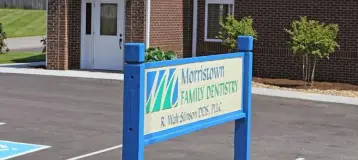Detailed Introduction
River Valley Health, previously operating as Cherokee Health Systems, is a significant healthcare provider in East Tennessee. It functions as both a Federally Qualified Health Center (FQHC) and a Community Mental Health Center (CMHC), indicating its commitment to serving medically underserved populations and providing integrated mental health services. The organization has a long-standing history, evolving since 1960 from a small community mental health clinic in Morristown, Tennessee, into a regional leader in integrated care.
River Valley Health's mission is to ensure access to effective, high-quality, comprehensive healthcare. They offer a wide array of services that encompass primary medical care, behavioral health (including individual and family therapy, crisis intervention, and substance abuse treatment with medication-assisted options), dental care (including routine cleanings, x-rays, extractions, and fillings for all ages), pharmacy services (including a delivery program), and optometry. They also provide specialized programs such as women's health (prenatal and postnatal care, family planning, STD testing, etc.), pediatric care (baby check-ups, shots, child development assessments), and walk-in clinics (Get Well Now).
A core aspect of River Valley Health's philosophy is accessibility. They accept a wide range of insurance plans, including TennCare, Medicaid, Medicare, and private insurance. Crucially, they also offer a sliding fee scale and financial aid options for uninsured or underinsured individuals, ensuring that financial hardship does not bar access to necessary care. They emphasize a patient-centered medical home (PCMH) approach, meaning a team of providers, nurses, and other healthcare professionals work collaboratively to coordinate care across the health system, including specialists and community services. This integrated model aims to treat the whole person, addressing physical, mental, and social wellness needs.
The organization serves approximately 70,000 patients annually across 20 clinic locations in 12 counties, supplemented by two mobile clinics and robust telehealth services. This extensive reach underscores their dedication to community wellness and their role in filling healthcare gaps in the region. They are recognized for their commitment to quality and safety, with a board of directors primarily composed of health center patients, ensuring patient perspectives are central to their governance and service delivery.





